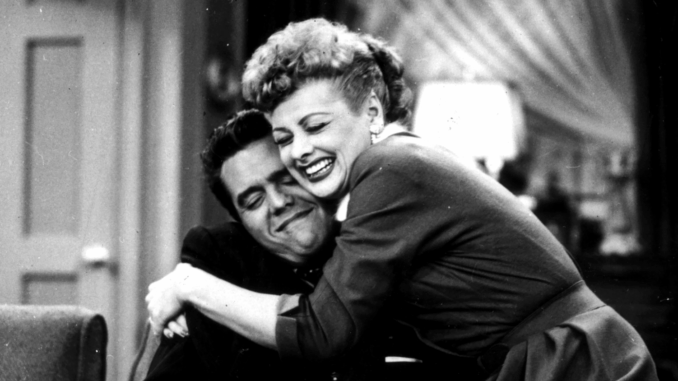
On January 19, 1953, more Americans tuned in to I Love Lucy than to watch the President of the United States. Why? Because Lucy Ricardo was having a baby.
The episode, titled “Lucy Goes to the Hospital,” wasn’t just a plot twist—it was a cultural earthquake. Over 44 million people watched it live, which at the time was nearly 72% of all American households with a TV. To this day, it remains one of the highest-rated scripted episodes in history.
But what made it so iconic wasn’t just the ratings—it was what it represented.
A Woman’s Story Told With Warmth, Not Shame
In the early 1950s, television avoided topics like pregnancy. You couldn’t even say the word “pregnant” on air—it was considered too vulgar. That’s why the I Love Lucy writers got clever, using the French-sounding word “enceinte” in early episodes and dancing around the language with grace and humor.
Still, they went ahead with the storyline. Lucy was pregnant in real life, and rather than hide it, they brought it into the show. That decision wasn’t just authentic—it was radical.
For the first time, millions saw a woman go through a pregnancy onscreen. She wasn’t background noise to a male lead. She was the lead, navigating cravings, belly laughs, and hospital jitters.
Comedy Meets Real Emotion
“Lucy Goes to the Hospital” is comedy gold: Ricky rushing around in a panic, the gang misunderstanding everything, a suitcase full of hilariously unnecessary items. But what makes the episode unforgettable is its tenderness.
When Ricky finally sees his baby boy—played by Little Ricky—it’s not a punchline. It’s a moment. Real, gentle, joyful. The audience, used to belly laughs, fell quiet. It was television growing up before their eyes.

TV Blurs With Real Life
Behind the scenes, Lucille Ball actually gave birth to her real son Desi Arnaz Jr. on the same day the episode aired. The timing wasn’t just a stunt—it was a deliberate move. Desi Arnaz, the producer as well as co-star, orchestrated it all. Newspapers covered the dual birth as if it were royal news.
And in a way, it was.
This wasn’t just a sitcom milestone—it was the first time television entered people’s homes as something human, not just funny. It showed that women’s lives mattered. That birth could be normal. That TV could reflect life, not just escape from it.
Legacy That Endures
Even now, decades later, sitcoms still draw from that moment. Pregnancy plotlines, birth episodes, heartfelt parenting arcs—they all lead back to Lucy Ricardo’s hospital bed.
Lucille Ball didn’t just birth a baby that night. She helped birth modern television.